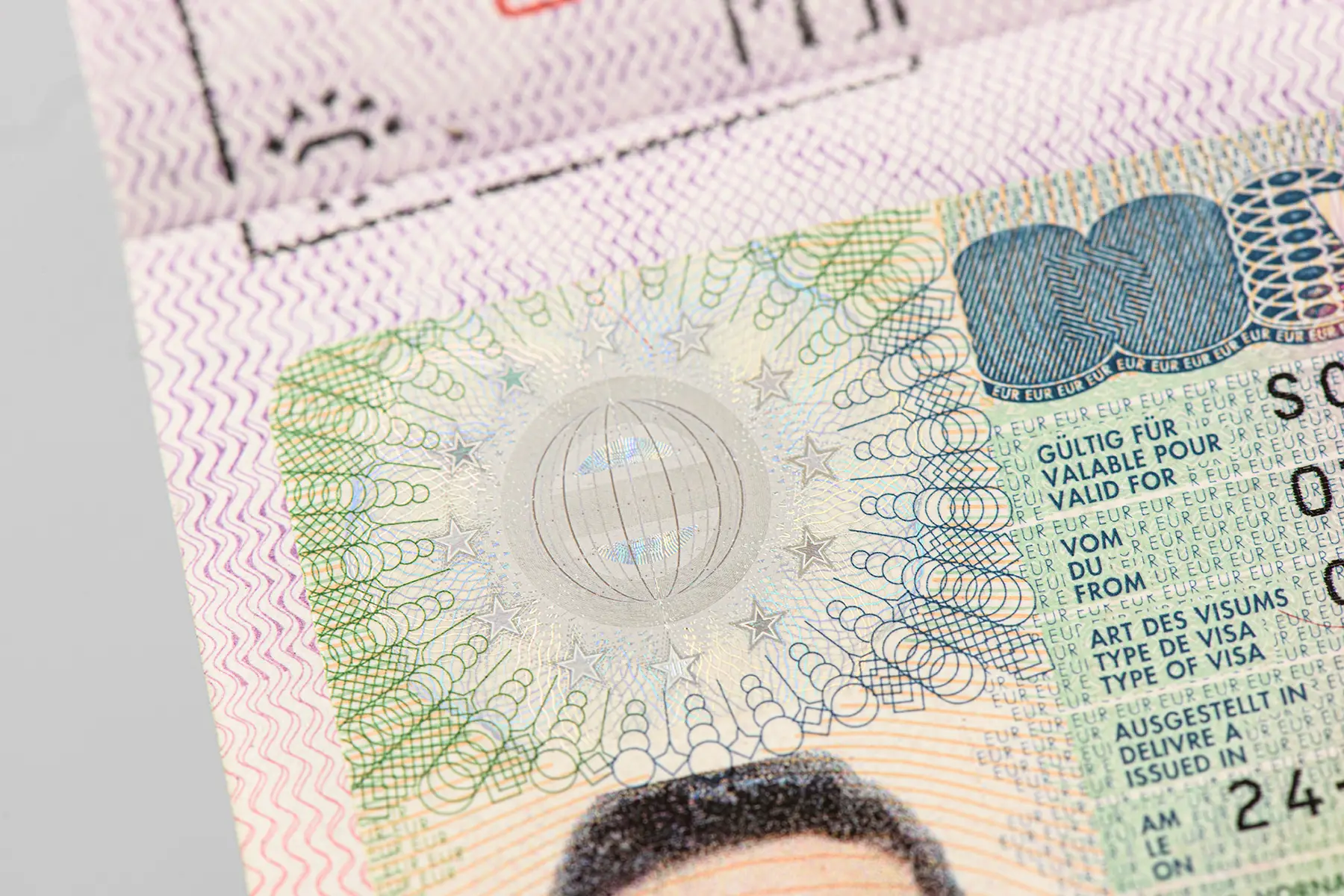Searching for work in Germany as an international can feel like a big step, especially if you’re limited to jobs for English speakers. However, with a degree or vocational training, relevant work experience, and at least some German language skills, your chances of finding a job are promising, particularly in industries experiencing labor shortages.
Get started on your journey toward landing a job in Germany by reading the following:
Skillshare
Expand your skill set with Skillshare, an online learning community for creatives. They provide classes from industry leaders in a range of artistic subjects, including illustration, design, photography, and much more. Follow lessons at your own pace and learn new skills with Skillshare.
The job market in Germany
Germany’s job market presents a mixed picture: stable in some areas but under strain in others due to ongoing economic challenges. Despite a slight dip in the country’s GDP in 2024, unemployment remains relatively low at 6.1% as of December 2024.
Youth unemployment is also low compared to other EU countries, but rising uncertainties in key sectors like automotive and manufacturing pose hurdles for job seekers.

At the same time, strong demand in fields such as healthcare, IT, and renewable energy offers opportunities for skilled professionals. Competition can be significant, especially for roles requiring niche expertise or fluency in German. However, government initiatives to attract skilled foreign workers and address labor shortages are providing a supportive environment for those with the right qualifications.
What jobs are in demand in Germany?
Germany’s main industries include:
- Automotive and mechanical engineering
- Chemicals and pharmaceuticals
- Electronics and electrical engineering
- Information technology and software development
- Renewable energy (especially wind and solar)
- Financial services and banking
Skills shortages have been reported in a number of sectors including:
- IT and software development
- Engineering (mechanical, electrical, and civil)
- Healthcare professionals (doctors, nurses, and senior care workers)
- Skilled trades (plumbers, electricians, and carpenters)
- Teachers and educators
- Scientific researchers (especially in biotechnology and green energy)
The biggest German companies are:
- Volkswagen
- Mercedes-Benz
- BMW
- Siemens
- Deutsche Bank
- Allianz
In addition to these, multinational companies with a strong presence in Germany include Amazon, Google, Microsoft, IBM, and Apple.
Job vacancies for foreigners in Germany
In Germany, expats and foreign workers play a major role in the employment market. In 2022, approximately 68% of new job vacancies were filled by foreign employees, a massive increase from 21% in 2011.
By the end of 2023, there were 419,000 foreigners holding temporary work permits in Germany, up from 76,800 in 2007. This upward trend reflects the country’s efforts to address labor shortages through immigration.
In 2020, Germany implemented the Skilled Workers Immigration Act (Fachkräfteeinwanderungsgesetz) to attract qualified professionals from non-EU countries.
This act simplifies the process for skilled workers to migrate and work in Germany, introducing an “opportunity card” based on a points system, considering qualifications, professional experience, language skills, and other criteria, allowing individuals to seek employment in Germany.
Job opportunities for foreign workers are abundant, particularly in sectors facing significant labor shortages. Fields such as healthcare, information technology, engineering, and renewable energy are actively seeking skilled professionals.

Regarding wage disparities, studies indicate that immigrant-native wage gaps exist in Germany, with variations depending on factors such as region and occupation. Research shows that wage differentials are more pronounced in metropolitan areas and are influenced by differences in educational attainment and sector of employment.
How to find jobs in Germany
Expatica jobs in Germany
You can find suitable openings on the Expatica jobs board, which has a constantly updated list of jobs in Germany.
EURES
If you’re from the EU/EFTA, you can look for a job through EURES, the European Job Mobility Portal, which is maintained by the European Commission. As well as looking for work, you can upload your CV and get advice on looking for work in Germany.
Public job sites
Germany’s Federal Employment Agency (Bundesagentur für Arbeit) offers a comprehensive online platform where you can register your CV and access numerous job listings across the country.
This resource is particularly helpful for international job seekers hoping to find employment in Germany. You can explore available opportunities and create your profile on their official website.
Job websites in Germany
These are the most popular general job websites in Germany:
If you’re in a certain industry or profession, you might also want to check the following websites:
- Academics – academic and research jobs
- Jobware – management and specialist
- Staufenbiel – internships and graduate jobs
Jobs in Germany for English speakers
If you’re looking for a job in Germany as an English speaker, there are a few dedicated sites that post the latest English job openings:
Recruitment agencies
Look in the German Yellow Pages (Gelbe Seiten) under Arbeitsvermittlung for agencies. They’ll be reputable if they are members of the Federal Employer’s Association of Personnel Service Providers or Bundesarbeitgeberverband der Personaldienstleister (BAP).
Before you sign on, check whether a company that will look for a job on your behalf will charge you a fee for doing so. In Germany, some may ask for a hefty fee of up to €2,000. You will find several international recruitment agencies operating in Germany, many that which list specialist jobs for foreigners.
Teaching English in Germany
There are lots of opportunities for native English speakers to teach English in Germany. These include opportunities in teaching school children, older students in language schools, private tutoring, as well as working with staff of international companies. You’ll need to have a degree and experience as well as a TEFL qualification.

Here are some English teaching job sites that might be helpful:
- TEFL Jobs Centre – the leading site for English teaching jobs around the world which is updated every week
- Go Overseas – a resource that features several English teaching programs and jobs throughout Germany
Embassies and foreign organizations
Check out opportunities at the foreign embassies in Berlin. You can also inquire with the foreign consulates in major German cities like Munich, Düsseldorf, Frankfurt, and Hamburg. Most embassy and consulate jobs will expect a high standard of both spoken and written German.
Newspapers
For highly qualified or academic jobs at national levels, buy copies of the Saturday editions of national newspapers or look online:
- Frankfurter Allgemeine Zeitung
- Suddeutsche Zeiting (Munich and the south)
- Die Welt
- Handelsblatt (Düsseldorf)
- Frankfurter Rundshau
- BerlinOnline
- Berliner Zeitung
Make the first move: speculative applications
It’s totally acceptable to approach German companies with speculative applications, but make sure that you do your homework thoroughly and ensure your qualifications and experience are exactly what the company is looking for.
Expatica’s directory lists plenty of businesses in different industries that work with expats in Germany. Check it out and fire off some applications to prospective employers that interest you.
Jobs in Germany for Americans
If you’re an American looking for a job in Germany, start with international job platforms like LinkedIn, Glassdoor, or local sites such as Stepstone and XING. Many opportunities for English-speaking professionals can be found in major cities like Berlin, Munich, and Frankfurt, particularly in multinational companies and tech startups.
Germany’s job market offers roles in engineering, technology, and manufacturing, as well as growing opportunities in education and tourism. While some positions are open to English speakers, proficiency in German can significantly enhance your prospects, especially in customer service, marketing, or administrative roles.
Teaching English is another popular option for Americans, with opportunities in private language schools, business English courses, or tutoring. See the section below for more information on teaching English, or find TEFL courses in Germany.
Self-employment and freelancing in Germany
If you have a viable business idea or are skilled in a trade that is in demand, you can work in Germany as a self-employed individual or a freelancer. The rules for setting up your own German business are broadly similar to finding employment: EU/EFTA citizens are free to start their own business, as are non-EU citizens with German residency or the necessary permit to do so.

There are around 4.7 million self-employed workers in Germany, with an additional 764,000 who do self-employed work as a second job. Altogether they make up around 16.4% of the German workforce.
You can set yourself up as a sole trader/unlimited company or fully register as a limited company and employ yourself as a director. This has its benefits but does mean that you have additional paperwork and corporate tax filing obligations in Germany.
If you’re thinking about starting a creative business, why not level up your skills with a resource such as Skillshare? Not only do they offer courses in artistic subjects, but you can also learn handy tips from other freelancers.
Traineeships, internships, and volunteering in Germany
Find traineeships in the EU for university graduates via the European Commission Traineeships Office (Bureau de Stages), or look for internships and summer placements at AIESEC (for students and recent graduates in the UK) or IAESTE (for students in science, engineering, and applied arts).
Globalplacement and Go Abroad also advertise internships. Praktikum is a good German site to search for intern opportunities.
You can also work abroad as a volunteer typically in exchange for board, food, insurance, and a small allowance; for those between 17 and 30, find volunteer programs up to 12 months at European Voluntary Service (EVS). Concordia is another organization for volunteer opportunities. For holiday volunteering opportunities, check Workaway.
How do you apply for a job in Germany?
Once you’ve found a job in Germany to apply for, you will need to prepare your application according to German expectations. This often means putting together an application file containing your CV, copies of your educational certificates and employer testimonials, and even samples of your work, if appropriate.

You’ll also need to write a cover letter to go with your application file. Plus, if you get through to the interview stage, you’ll need to know what to expect in a German job interview, and what to do – and not to do – during the interview.
It’s also worth trying out online resume builders like Resume.io to simplify the job application process and land lots of interviews.
What are the requirements to find work in Germany?
1. Do you need a German work visa?
If you are from the European Union (EU) or the European Free Trade Association (EFTA), you don’t need a permit to work in Germany as long as you have a valid passport or ID card, although registering your address is required.
For anyone from outside the EU, you’ll need one of the following visas to work in Germany:
- EU Blue Card: for highly qualified non-EU workers with a job offer meeting the salary threshold (€48,300 as of 2025)
- Skilled worker visa: for non-EU citizens with recognized qualifications and a job offer in fields facing labor shortages
- Job seeker visa: allows non-EU professionals to stay in Germany for up to 6 months to search for employment
- Work visa for non-EU nationals: for general employment opportunities, with specific conditions based on qualifications and job type
- Freelancer or self-employment visa: for freelancers or entrepreneurs intending to work in Germany
2. What are the language requirements to work in Germany?
While you may find English-speaking jobs in Germany, you’ll need to be able to speak at least some German to get most jobs (even those teaching English). If you speak no German, it’s likely that you’ll be restricted to casual and informal work which is typically lower-paid.
There are many language schools in Germany if you need to brush up on your German.
3. Can you transfer your qualifications to work in Germany?
There are around 150 regulated professions in Germany, including teachers, doctors, and dentists. If yours is one of them, you’ll need to get your qualification recognized by the relevant German authority or professional association before you can work in Germany. Check out your occupation on Recognition in Germany and find out how to get it recognized.

Contact the Central Office for Foreign Education (Zentrale Stelle für die Bewertung ausländischer Qualifikationen, ZAB) to get a foreign university degree verified. Countries signed up to the Bologna Process will have their qualifications recognized in Germany.
4. You will need a tax and social security number
If you work in Germany or are enrolled in public health insurance, you will receive a social insurance number (RNVR). This is a 12-digit number (containing one letter) that is used for social security and state pension services. Anyone who contributes towards German social security should receive the number and it should be listed on your payslips and health insurance documents.
All German residents are also assigned a tax identification number (Steueridentifikationsnummer). This is a different number made up of 11 digits and is used for tax calculation purposes.
Financial support while looking for a job in Germany
Germany has a social security system that includes unemployment benefit that is paid to those out of work. It’s a contributions-based system so you will need to have paid into it while working in order to claim full benefits when out of work.
However, funds are available at a lower level for those who haven’t been able to make contributions. You will need to enquire with your local employment office about your entitlements if you haven’t made sufficient contributions.
If you want to access training to improve your work skills and career prospects in Germany, you can find suitable courses through the Federal Employment Agency.
Starting your job in Germany: important questions
Employment probation periods in Germany are generally three months but can be as long as six months. During this time, the notice period for terminating the job contract will be shorter.

Your employer should enroll you for German health insurance and other German social security benefits as soon as you start work. This includes enrollment for the German state pension and for work-related accident insurance in Germany.
Depending on your employer, you may also be offered the chance to opt in on a company pension to top up your state pension benefit, as well as other in-work benefits.
Useful resources
- Federal Employment Agency (Bundesagentur für Arbeit) – find jobs and training opportunities as well as information about working in Germany
- EURES – EU job portal









